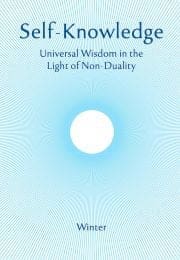The Self as Bliss
Shankaracharya (c.700), the foremost authority on the non-dual teachings, had a contemporary called Mandana Mishra whose work called the Brahma Siddhi later became influential in Shankara’s own school.
One of the aims of Mandana’s teaching is to defend the Upanishadic doctrine of liberation as the realisation of one’s true nature as infinitude and bliss. It was a doctrine that was challenged by some of the other systems of philosophy then current, in particular the claims of the Ritualists (Mimamsakas), Logicians (Tarkikas) and Buddhists, who maintained that liberation meant nothing more than the extinction of the pain inherent in rebirth (sansara). It is well worth considering Mandana’s position and the arguments he employs, since these have important implications for our own way of practice and reflection.
Subscribe or enrol for free guest access to read all of this article and Self-Knowledge online.
Already subscribed or enrolled? Log in:


